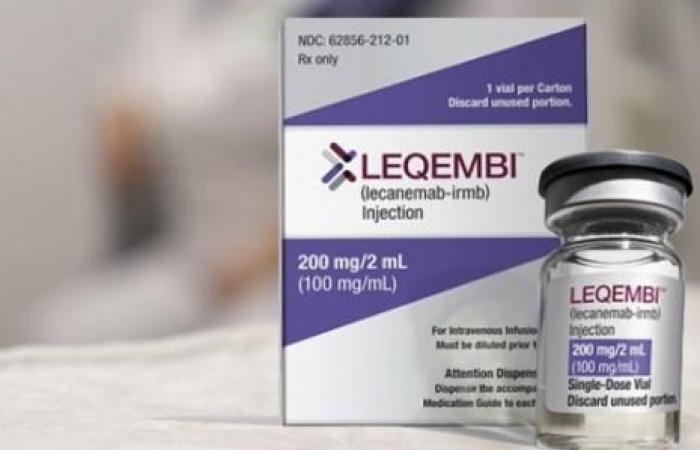On November 14, the European Medicines Agency (EMA) granted marketing authorization (MA) to Leqembi (lecanémab), for the treatment of early-stage Alzheimer’s disease, for a restricted category of patients. While the EMA had given an initial negative opinion this summer, this turnaround raises questions among certain scientific societies.
No effective treatment for Alzheimer’s disease exists on the market today. The recent decision of the EMA to approve the monoclonal antibody Leqembi for marketing in Europe has therefore aroused immense hope among patient associations. Already authorized in the United States and Japan, validated this year by the Chinese, British and even Israeli health authorities, the treatment developed by the Eisai and Biogen laboratories could soon arrive in the countries of the European Union and in particular in France, subject to the opinion of the High Authority for Health (HAS). A “good news”, particularly welcomed by the Vaincre Alzheimer foundation, which mobilized after the initial refusal of the EMA this summer. Leqembi is administered as an intravenous infusion once every 15 days and is indicated for patients in the early stages of the disease. In its opinion of November 14, the EMA recommends excluding its use from people carrying the apolipoprotein E4 gene. A precaution which is explained by the risks of serious side effects (cerebral hemorrhages) observed in this category of patients.
For the French Society of Pharmacology and Therapeutics (SFPT), the final decision of the EMA nevertheless remains “questionable”. The learned society considers that the results of the clinical trial which made it possible to evaluate the effectiveness of this treatment are not sufficiently convincing. « Beyond the fact that from a methodological point of view the results of the trial only remain valid on the condition of retaining all of the patients, this subgroup analysis, which appears less unfavorable, still does not show any clinically relevant efficacy of this treatment, even though potentially serious adverse effects remain”analyzes the SFPT regarding this trial initially conducted on nearly 1,800 patients before homozygous carriers of allele 4 of the ApoE gene were removed (i.e. 15% of the individuals monitored), patients who were therefore most at risk of experiencing serious side effects. The SFPT further emphasizes that “ the risk of adverse effects in terms of microhemorrhages and cerebral edema appears multiplied by 6.8 and 1.9 respectively in patients who are treated. in the subgroup. Even excluding patients for whom lecanemab is not currently recommended by the EMA, the risk is therefore still very present.
Doubts shared by Professor Gilles Bouvenot, emeritus member of the National Academy of Medicine. “The EMA had said that it was not in favor of granting marketing authorization for Leqembi because, in particular, of an unfavorable benefit/risk ratio. We present to her a subgroup in which brain complications do not reach 12% – as in the overall trial population – but only 8% and there, she says yes! I don’t know where the EMA puts the cursor on the acceptability of adverse brain effects such as edema and hemorrhage. he was surprised on November 20 during a bi-academic Medicine/Pharmacy session on the theme “Too expensive or not expensive enough: the price of the drugs in question”. During this intervention, the professor even allowed us to go even further… “I am convinced, but I am undoubtedly suspecting intent, that the EMA was subjected to pressures which it was difficult to resist. »
Considering the “limitations of results” of the trial carried out on lecanémab, SFPT, “cannot recommend the use of this medicinal product in the current state of available efficacy and safety data”. For the learned society, the EMA decision, based “on data from a subgroup of patients without the risk linked to this treatment being completely controlled” is therefore more than questionable. A barely concealed appeal to the HAS, which should soon receive a request for early access from Laboratoires Eisai to allow the arrival of Leqembi on the French market.






